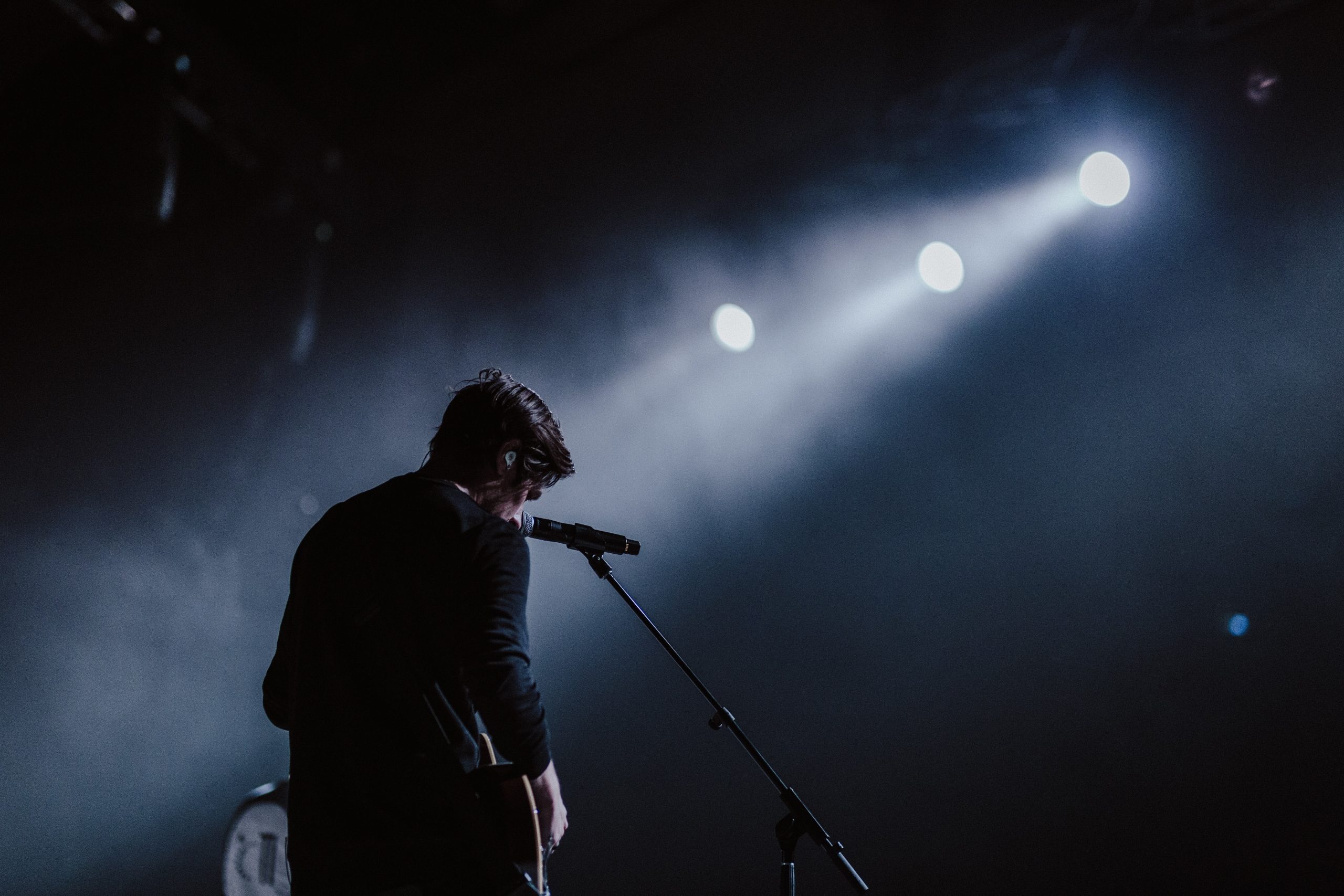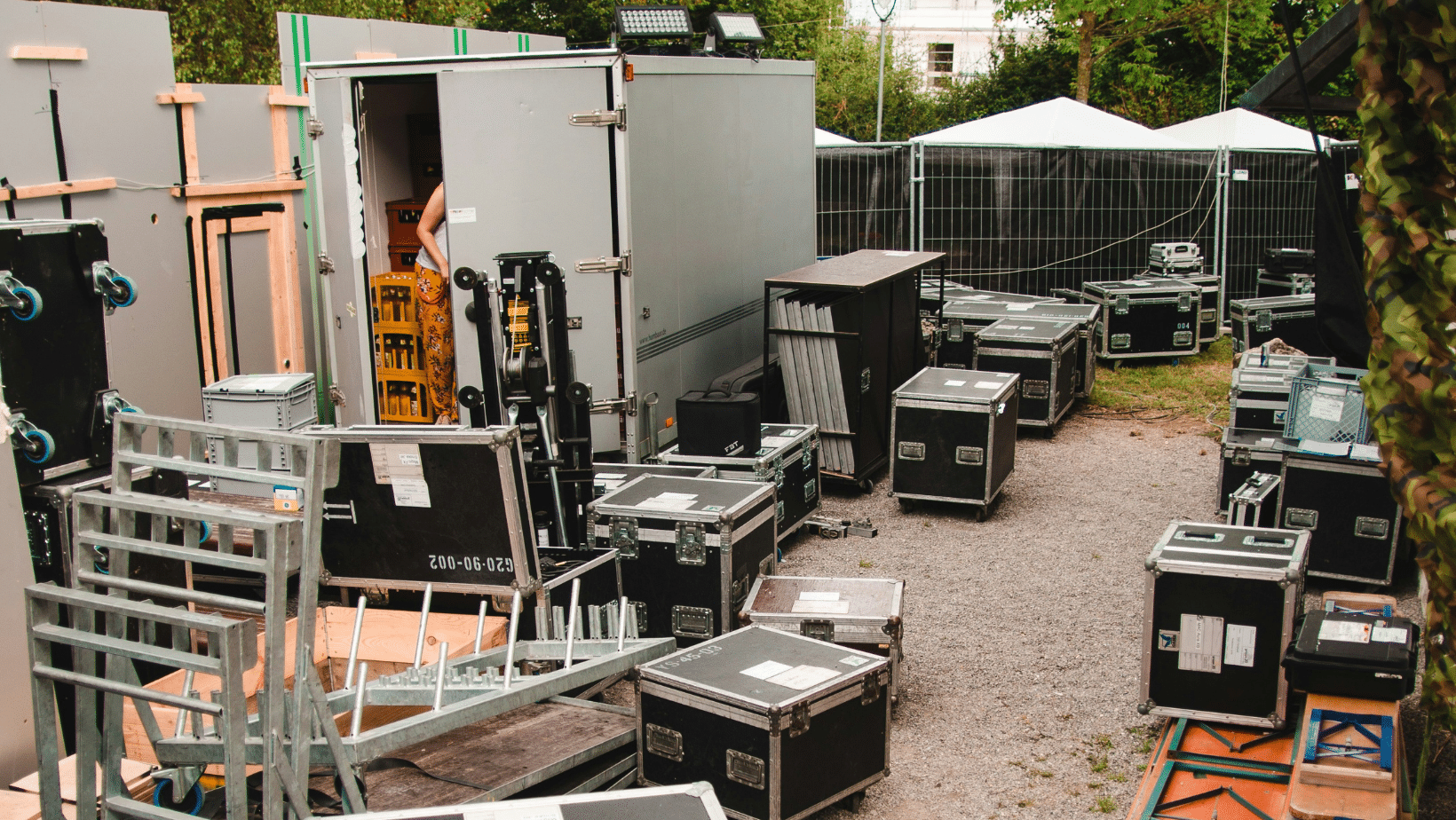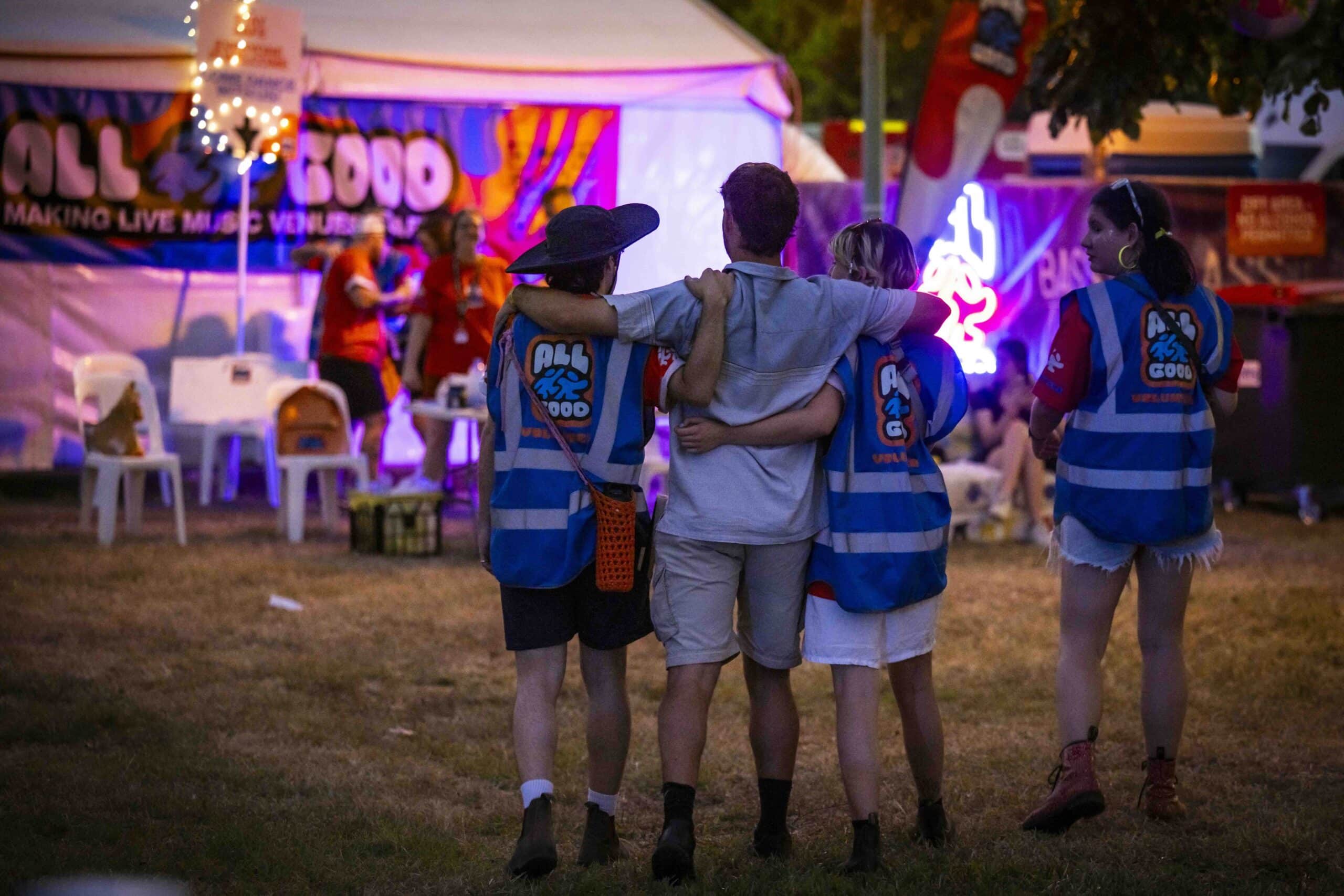It’s not always easy to keep on top of our mentally healthy practices at the best of times, but working in music throws us unpredictable and unusual situations.
A huge one for many who work in music is being on tour, the lack of sleep, late nights, early starts, gruelling schedules and the distance from your support network all these things make it EXTRA tough to keep on track with your tool kit.
Tamsin Embleton, editor of the soon-to-be-released landmark publication Touring and Mental Health: The Music Industry Manual, has shared a sneak preview with her 10 top tips to set yourself up for success when on tour.

1. TAKE STOCK
If you’ve toured before, consider what you found draining last time you toured and what helped restore your energy levels. If this is your first time, identify what helps you to feel safe and centred at home. What helps you to unwind? How do you rebalance your energy levels?

2. PREPARE
Your capacity and your ambition are not the same thing. Build resilience by setting off well practised – attend rehearsals and go to sound check. Ready yourself for the full range of shows (good/bad/ugly/quiet). Develop pre and post show routines to help get in the zone, and decompress after the high of being on stage (see below). Learn strategies for dealing with hecklers and how to keep things fresh in interviews. It can also be worth considering what you are and aren’t comfortable discussing in interviews (leave something back for yourself – you don’t have to give everything!)
Injury prevention exercises can reduce the risk of repetitive strain injury due to overuse of role-specific muscle groups. If you are a vocalist – take a steamer and learn vocal warm-up techniques. Rest your voice post-show. Learn correct lifting techniques if you are crew.
3. GROUND YOURSELF
Other people’s perception of you can be a distorting lens to look through. If you’re surrounded by people who flatter you, or who tell you what you want to hear, you might lose touch with the you behind your public persona. “Are you talented? Are you gifted? Have you worked hard? Those things all might be true for a creative, successful person, but the idea that you are inherently more special than others, is a dangerous one. That’s where people get screwed up” says Taylor Hanson. Make sure you keep one foot on the ground, and stay in contact with people you trust.
4. CONNECTION IS KEY
From cradle to grave healthy relationships are an effective form of stress relief, creating a felt sense of safety in the body. As Philip Selway of Radiohead told me, “The key thing for me in touring in keeping my sanity has been my relationship with my wife. It becomes tough when communication breaks down between us when I’m away – that can feel very lonely and sad and threatening”.
Justin Bieber’s ex-tour director Chris Gratton said that Hayley Bieber instilled ‘family hour’ on the Bieber tours. At 4pm every day, everyone in the touring party downed tools and reconnected with therapists, friends and family. This provided much-needed connection with loved ones at home for those on the road and it helped those left behind at home feel valued, too.
5. IMPROVE YOUR MINDSET
Many performers struggle with perfectionism. Perfection is a protective defence strategy that increases vulnerability when hiccoughs inevitably occur. The thinking goes: ‘I must be perfect in order to be accepted by myself/others’, or, ‘others must meet my exacting standards in order to be acceptable’. It is a rigid mindset that can prolong recovery from challenging times, and can damage self-esteem. Developing a flexible, ‘growth’ mindset where you reframe criticism as constructive feedback, embrace challenges and persist despite setbacks, will help you recover from adversity more quickly. “The key is being open to the fact that you don’t know everything, nor are you the finished article” says Performance Psychologist Stu Holliday of Music Industry Therapist Collective.
6. RECOGNISE EARLY WARNING SIGNS
Stress can impact your mind, brain, body and behaviours. Identify early warning signs that you are struggling e.g. do you store tension in areas of your body, or are there other bodily symptoms like tension headaches, tummy issues, sleep disturbance, skin issues that flare up when you are stressed? How about your behaviour and communication? Do you withdraw or become irritable? Or perhaps you become more tearful or anxious? Does your outlook change? Do you restrict or consume more food? What about your relationship to alcohol, substances, sex or porn, gambling, work or shopping? Consider the long term impact of these choices on yourself and others.
7. DECOMPRESS POST-SHOW
Learning how to decompress can help your body to manage elevated stress hormones. Discover techniques like progressive muscle relaxation, breathwork or visualisation and find what works for you. Also consider the importance of physical soothing – it’s easy to get ‘skin hunger’ on tour, says tour manager Lotje Horvers. Schedule massages or physio appointments to reduce stress, and get some skin-on-skin comfort.
8. SLEEP
Try to establish a sleep routine. You might also benefit from timed power naps or time outside during daylight hours advises DJ and sleep coach, Tom Middleton. On tour, sleep quality is compromised by stress hormones post-show and changeable sleep environments (like tour buses or hotel rooms) and substance use. Late night activity, noise and light stimulation and lack of daylight can interfere with melatonin production impacting your circadian rhythm. Alcohol will impair sleep quality and may leave you feeling worse the next day (hangxiety, anyone?). Dim the lights post-show to help melatonin production, use calming music and scents, engage the parasympathetic nervous system using 4-7-8 breathwork technique, progressive muscle relaxation or a yoga move like Legs-Up-The-Wall Pose (Viparita Karani). Keep an eye on the stimulants you consume. CBD drinks or sleepy valerian root herbal teas may be a wise addition to catering riders. If you can’t sleep – remember that rest is the next best thing.
9. LOOK AFTER YOUR EARS
“Noise-related hearing loss is 100% permanent, but 100% preventable” says clinical audiologist Gladys Akinseye. Tinnitus and other hearing-related issues can be exacerbated by stress and anxiety, as well as cause stress and anxiety. Consider investing in custom fitted hearing protection or in ear monitors.
10. FUEL AND HYDRATION
It can seem impossible to eat well when you’re overtired and dining at service stations or existing on bar snacks. Consuming celebratory party food every night may leave you deprived of important nutrients. Rather than drinking excessively post-show, or eating a pizza, which might interfere with sleep quality, choose something easy to digest like a chicken, been or falafel wrap.
Alternate your dressing room riders for variety, eat from all the food groups (including high quality protein, vegetables and fruits, fibre/complex carbs and healthy fats) and including as many whole foods (that have not been heavily processed or refined) as possible. Take Tupperware or a small portable blender with you.
It’s easy to get dehydrated when drinking coffee and alcohol, and losing salts through sweat when performing. Dietician Emmaline Rasmussen of Sound Nutrition offers this recipe for a quick DIY Sports Drink:
• 2 cups liquid (coconut water for added potassium, herbal tea, or filtered water)
• 1/8 tsp Himalayan salt (sea salt will work)
• 2 teaspoons sweetener (manuka honey) or ¼ cup natural fruit juice.
TOURING AND MENTAL HEALTH: The Music Industry Manual
Touring and Mental Health: The Music Industry Manual is a landmark publication written to help musicians and live music professionals enjoy happier healthy tours.
Featuring original research, show-stopping advice written by world renowned performing arts clinicians like Dr Susan Raeburn (chapters on Addiction and Stress), Professor Dianna Kenny (Music Performance Anxiety), and Dr Lou Cox (writing about Why Successful Bands Fail), this hotly anticipated book provides robust clinical advice to help performing artists, touring professionals and those who work with them, navigate the highs and lows of life on the road.
Each of the 30 chapters is peppered with anecdotes from artists like Nile Rodgers, Philip from Radiohead, Charles from Pixies, Katie Melua, Will Young, Pharoahe Monch, Steph from Big Joanie and prominent touring professionals like Jake Berry, Dale ‘Opie’ Skjerseth’, Tina Farris, David ‘5-1’ Norman, Marty Hom, Jim Digby, Misty Roberts and many more.



